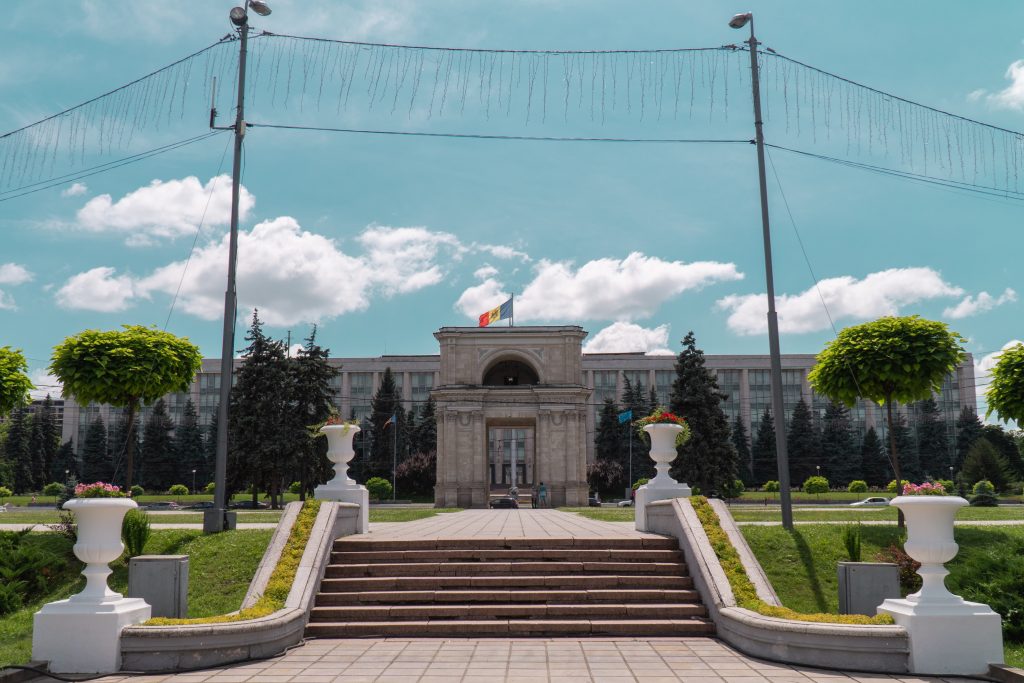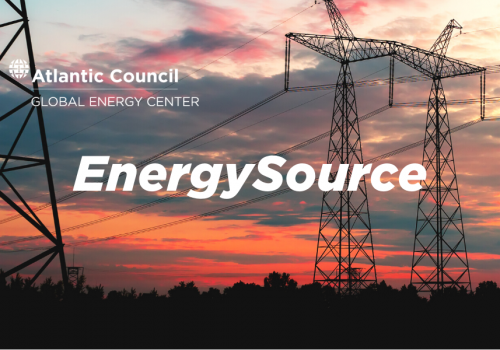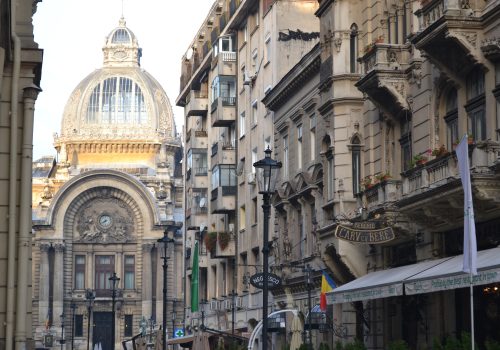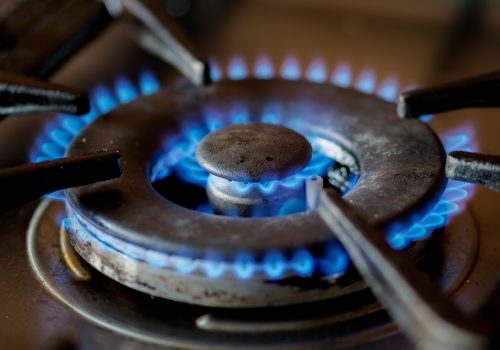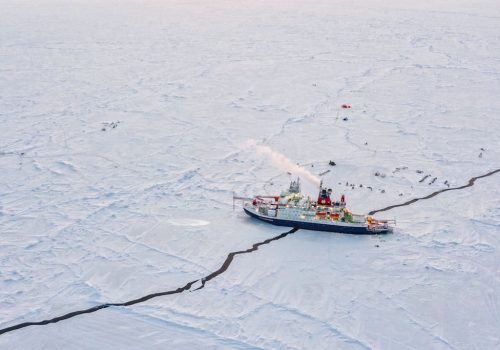Moldovan President Maia Sandu’s September 3 announcement that an independent audit proved her state did not owe Russia’s Gazprom $800 million was the latest move in the country’s long-running battle for energy independence. Now, Moldova has the opportunity to make good use of the lessons of its past by strengthening regulatory independence, increasing competition, and introducing transparent pricing.
In the late-1990s, Moldova undertook an ambitious plan to modernize its energy infrastructure and transition away from coal and wood. To achieve this, its aging gas system had to be upgraded and extended to previously unconnected parts of the country.
The National Gasification Plan of 2000 and other subsequent legislation facilitated this process and guaranteed returns for private investment through fair and cost-reflective tariffs. The independent National Agency for Energy Regulation (ANRE) was established to follow best practices from US and European counterparts, including a transparent and reasonable regulatory structure to enable cost-reflective tariffs that would provide incentives for private investment.
However, like many regulators across the region, ANRE was never able to achieve the required level of independence or establish due process. As a result, the setting of gas prices remained political tools to decide whether governments stood or fell.
In Moldova, the situation was more complex than regulatory failure. In 1998, through a financial maneuver based on a claim of outstanding debt, Gazprom was able to take a controlling stake in Moldovagaz, the national gas operator of Moldova. By doing so, Gazprom completely captured the Moldovan energy sector.
Through its dubious acquisition of Moldovagaz, Gazprom acquired direct majority control of the entire chain of gas supply, transportation, and distribution in Moldova, thereby determining prices in the country. With that came leverage over Moldovan governments and consumers alike.
By taking over Moldovagaz, Gazprom also took control of virtually the only source of wealth in Europe’s poorest country, giving it significant political and social clout. This meant that—although successive governments from the late-1990s took various measures to liberalize energy markets and move closer to the European Union (EU)—reforms always faced insurmountable obstacles. Cost-reflective tariffs remained elusive, imposing a high cost on the consumer. In the intervening years, Moldova would also be taken to arbitration by two European energy firms over this issue.
In 2012, new legislation required the unbundling of Moldovagaz into separate supply, transmission, and distribution entities to comply with EU law. In 2016, another law reaffirmed this requirement as part of Moldova’s association agreement with the European Union. However, a derogation was applied to Moldova, and the unbundling was put on hold.
Following Russia’s full-scale invasion of Ukraine in 2022, Moldova, led by former World Bank economist Maia Sandu, found itself in a unique position. For the first time, there was international interest in, and support for, ending Russian domination of Moldova’s energy sector. This came mainly in the form of financial assistance aimed at ensuring Moldovan energy security—meaning independence from Gazprom—on the basis of implementing energy market reforms.
Despite paying lip service to the requirements of the law and its international obligations, Moldova has dawdled on unbundling. After much delay, a recent announcement on September 5 indicated that the transmission function of Moldovagaz would now be operated by the Romania’s Transgaz. This is a small step in the right direction but a far cry from what an efficient market would require. It does not separate the ownership of the transmission network from Gazprom’s subsidiary nor does it address independent distribution or competition in gas supply.
Moldovagaz, which has twelve regional distribution subsidiaries, somehow maintained a single nominal distribution tariff for the entire bundled entity since 2018. Over the past year, Moldovagaz applied for separate distribution tariffs for each of its twelve subsidiaries, which were approved by ANRE last July, averaging more than double the previous—likely already inflated—tariffs.
Despite this, Moldovagaz claimed to be accumulating debt to Gazprom once again, to the tune of approximately $800 million. This debt claim was recently taken apart by a Moldovan government audit, and a forensic review conducted by a Norwegian law firm and a London-based auditor.
The battle for the control of Moldova’s energy sector is raging. Moldova has achieved substantial success in switching to alternative, non-Russian suppliers over the past eighteen months. Nevertheless, Moldovagaz—and thereby Gazprom—has maintained a powerful influence.
In fact, new amendments to the 2016 energy law recently proposed by the Sandu government have raised alarm in Europe and the United States, as they seem to aim more at closing the energy market—protecting Moldovagaz’s dominance—than at liberalizing it. The law aims to enshrine the government’s emergency decree from last May which imposes an exit fee on any customer wishing to change supplier from Moldovagaz. This decree effectively killed the nascent competition in supply, leaving the playing field free for Moldovagaz and its subsidiary, Transautogaz, to undercut rival suppliers.
Despite Moldova’s recent unprecedented political and financial support from the West, the government and ANRE have been unable to break the excessive influence of Moldovagaz, threatening Moldova’s ability to garner international sympathy and assistance in the future.
While the audit to undermine Gazprom’s debt claim is a positive step, Moldova also needs to comply with its domestic legislation and international obligations. It must start by finally implementing the unbundling of Moldovagaz and strengthening ANRE as an independent and professional regulator applying cost-reflective tariffs fairly and transparently to all operators.
These steps are essential for Moldova to achieve energy security and open access to cheaper energy for Moldovan consumers. Regulatory reform is absolutely crucial for the next phase of Moldova’s development, as international financial assistance begins to run dry, and Moldova increasingly turns to private foreign investment to sustain its growth.
Jamal Nusseibeh is CEO of Ramla Capital, a US and Swiss-based firm, and is an investor in Rotalin Gas, a competitor to Moldovagaz currently in investment arbitration with Moldova. He has a M.A. from Sciences Po in Paris, is a barrister at law in the United Kingdom, and has a LL.M. and PhD (JSD) from Columbia University in New York.
Branko Terzic is a management consultant and a former commissioner on the U.S. Federal Energy Regulatory Commission and the Wisconsin Public Service Commission. He is also a former managing partner for energy and infrastructure of Deloitte Central Europe and former chief executive officer of Yankee Gas Company in Connecticut. He holds a B.S. and honorary Doctor of Sciences in Engineering (Sc.D.) from the University of Wisconsin-Milwaukee.
Related content
Learn more about the Global Energy Center

The Global Energy Center develops and promotes pragmatic and nonpartisan policy solutions designed to advance global energy security, enhance economic opportunity, and accelerate pathways to net-zero emissions.
Image: Arcul de Triumf in Chișinău, Moldova, by Dorin Seremet courtesy of UnSplash (https://unsplash.com/photos/_ATwwmA7Pyw)
